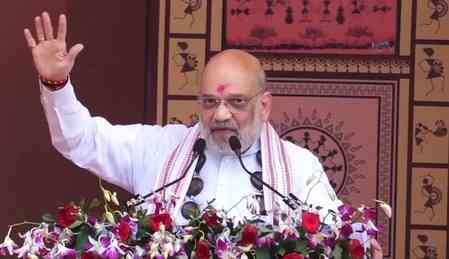Bengal govt gives job to wife of migrant worker lynched in Haryana
The West Bengal government on Wednesday gave a job to the wife of Sabir Malik, a migrant worker from the state who was lynched in Haryana over suspicion of consuming beef on August 27.

Kolkata, Sep 4 (IANS) The West Bengal government on Wednesday gave a job to the wife of Sabir Malik, a migrant worker from the state who was lynched in Haryana over suspicion of consuming beef on August 27.
Chief Minister Mamata Banerjee handed over the appointment letter to Malik's wife Shakila Sardar, who came to the state secretariat Nabanna along with her four-year old daughter.
Ever since the news of the lynching surfaced, the Trinamool Congress has been vocal on the issue, claiming that Malik was murdered by people having links with cow vigilante groups.
On behalf of Trinamool, its Lok Sabha MP Samirul Islam contacted the members of the victim’s family and conveyed the state government's decision to stand by them.
As per sources, Shakila Sardar has been provided with a contractual appointment in the Land and Land Reforms Department for one year. On competition of this period, she will be absorbed as a Group-D staff.
The job offer is in addition to the compensation of Rs 3 lakh already provided to the victim's family.
Five alleged cow vigilantes have been arrested while two minors have been detained in Haryana's Charkhi Dadri district for the killing of Malik.
As per reports, the accused suspected that Malik had consumed beef so they hatched a plot to kill him, the police said.
The suspects reportedly called Malik and another labourer to a shop under the pretext of selling empty plastic bottles on August 27, and thrashed them. While Malik succumbed to his injuries, the other labourer is being treated at a hospital.
The five arrested persons have been identified as Abhishek, Mohit, Ravinder, Kamaljit and Sahil.
Malik used to work in Haryana as a ragpicker in a village in Charkhi Dadri district, where majority residents are migrant labourers.
--IANS
src/arm


 IANS
IANS 








